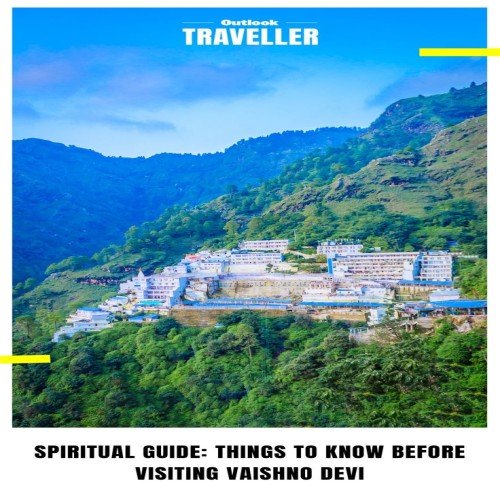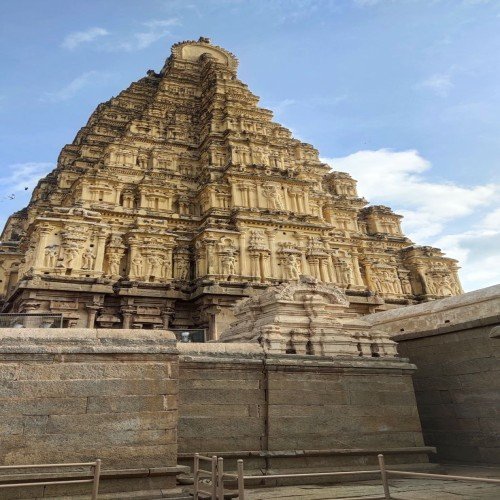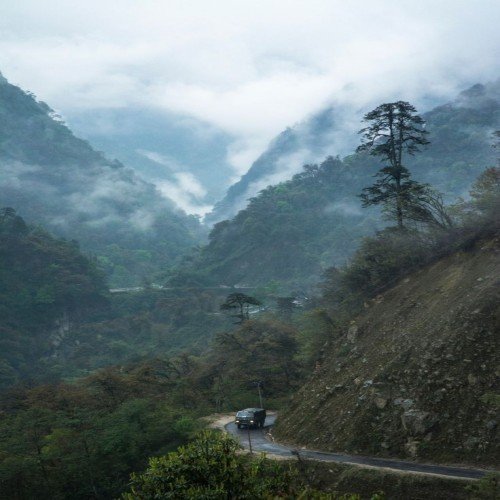
Discovering Patnitop: A Hidden Gem in Jammu and Kashmir
Posted at 13/Nov/24

Exploring Katra: The Gateway to Vaishno Devi
Posted at 13/Nov/24

Vaishno Devi Blog: A Spiritual Journey to the Divine Abode
Posted at 13/Nov/24

Discovering Hampi: A Journey Through the Ancient Ruins of Vijayanagara
Posted at 13/Nov/24
Written by Lalit Saini
Posted at 12/Nov/24

Tucked away in the northeastern corner of India, Gangtok, the capital of Sikkim, is a vibrant blend of natural beauty, rich culture, and adventure. Perched at an altitude of 1,650 meters (5,410 feet), this charming hill station is known for its breathtaking views of the Kanchenjunga, the third-highest mountain in the world, its lush green landscapes, and its welcoming atmosphere. Gangtok offers a peaceful retreat, perfect for nature lovers, adventure seekers, and those looking to explore the culture of Sikkim.
Your journey to Gangtok will be a scenic one, as you travel through winding mountain roads, passing through tea gardens and dense forests. Gangtok is well-connected by road to major cities in North Bengal and Sikkim, with the nearest airport being Bagdogra, about 120 km away, and New Jalpaiguri being the closest railway station.
As you enter the town, you’ll immediately be captivated by the panoramic views of the Himalayas and the vibrant Tibetan influence that is evident in the architecture, monasteries, and daily life of the locals.
Once you settle in, head to MG Road, the heart of Gangtok. This pedestrian-friendly road is lined with shops, cafes, and restaurants, where you can sample traditional Sikkimese and Tibetan food, shop for souvenirs like handicrafts, woolen clothes, and tea, or simply enjoy the atmosphere of this bustling street.
After a leisurely walk along MG Road, visit the Chorten (Stupa) and the Tibetan Buddhist Monastery, which are located nearby. These places of worship are important to the local Buddhist community and offer a serene environment to relax and reflect.
Lunch: Head to Taste of Sikkim for a meal that includes local dishes like Phagshapa (pork with radish and chili), Momos (dumplings), and Sha Phaley (fried Tibetan bread).
In the evening, take a trip to Tashi Viewpoint, located about 8 km from the main town. This viewpoint offers stunning views of the snow-capped peaks of Kanchenjunga and the surrounding mountain ranges, especially during sunset when the mountains are bathed in golden light. It’s an ideal spot for photography and to soak in the natural beauty of the area.
Begin your second day in Gangtok with a visit to the Rumtek Monastery, one of the largest and most important Buddhist monasteries in Sikkim. Situated 24 km from Gangtok, this monastery is known for its beautiful architecture, rich history, and spiritual significance. The Golden Stupa here is a must-see, as it contains the relics of the 16th Karmapa.
The Rumtek Monastery is located in a serene environment and offers a peaceful atmosphere for meditation and introspection. The monastery also houses a Tibetan Buddhist cultural center and a museum.
Lunch: Return to Gangtok and have lunch at The Royal Café, where you can enjoy a variety of dishes, from traditional Sikkimese fare to international cuisine.
After lunch, visit the Namgyal Institute of Tibetology, a must-see for those interested in Tibetan culture and history. This museum is dedicated to Tibetan studies, housing a collection of ancient manuscripts, sculptures, and other religious artifacts. The building itself is an architectural marvel, constructed in the traditional Tibetan style, with intricate woodwork and ornate designs.
Next, take a short walk to the Do Drul Chorten Stupa, which is one of the most significant stupas in Gangtok. Surrounded by 108 prayer wheels, the stupa offers a peaceful space for meditation and reflection.
End your day with a visit to the Gangtok Ropeway for a spectacular aerial view of the city and the surrounding mountains. The cable car ride takes you from the base to the upper station, offering panoramic views of Gangtok, the valley below, and the majestic Kanchenjunga range.
Next, head to Banjhakri Falls, located about 7 km from Gangtok. This beautiful waterfall is surrounded by lush greenery and is believed to be a sacred site in Sikkimese culture. The area around the waterfall has been developed as a park, with walking trails, sculptures, and a peaceful atmosphere that makes it a great place for relaxation and nature walks.
On your third day in Gangtok, take an early morning trip to Tsomgo Lake, one of the most scenic high-altitude lakes in the region, located around 40 km from Gangtok. The drive to the lake is an adventure in itself, with stunning views of the mountains and valleys. Tsomgo Lake is especially beautiful during the winter months when it is frozen, and you can enjoy activities like yak rides and photography.
From Tsomgo Lake, visit the Baba Mandir, a shrine dedicated to a soldier named Baba Harbhajan Singh, who is revered by the locals. The temple is situated on a hilltop and offers a tranquil ambiance, along with spectacular views of the surrounding landscape.
Lunch: Pack a lunch or enjoy the local eateries near Tsomgo Lake, where you can try local snacks and warm beverages.
For adventure enthusiasts, a trip to Nathula Pass, located at an altitude of 4,310 meters (14,140 feet) on the India-China border, is a must. It is one of the highest motorable passes in the world and offers a unique opportunity to see the Indo-China border and experience the harsh and rugged terrain of the Himalayas. The trip is subject to weather conditions and requires permission from the authorities, so be sure to check in advance.
If you’re not heading to Nathula, you can spend the afternoon exploring the Kyongnosla Alpine Sanctuary nearby, which is a great place for trekking, wildlife viewing, and birdwatching.
The best time to visit Gangtok is between March and June (spring and summer) when the weather is pleasant and ideal for sightseeing and outdoor activities. September to December (autumn) is also a great time to visit, especially for those interested in clear skies and views of the snow-capped mountains. Winter (December to February) is perfect for snow lovers, but be prepared for colder temperatures.
Gangtok is a captivating destination that offers a perfect blend of adventure, nature, spirituality, and culture. Whether you're admiring the beauty of Tsomgo Lake, trekking through the Alpine Sanctuary, or simply soaking in the charm of this Himalayan town, Gangtok promises an unforgettable experience. It’s a place that will not only mesmerize you with its stunning landscapes but also leave you with a deep sense of peace
Copyright © Disha Holidays 2024-2025 | All Right Reserved